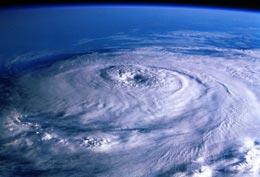US considers a national climate service
Program would merge climate-change data from multiple agencies
The US government may soon synthesize its climate data into a central user-friendly service rather than having it scattered across multiple agencies. The idea has been floating around the National Oceanic and Atmospheric Administration (NOAA) for about 30 years, but it may be given a boost if Jane Lubchenco is confirmed, as expected, as agency head.
The National Climate Service would consolidate climate records and forecasts from research groups and government agencies, offering a single authoritative source. Lubchenco, a marine ecologist at Oregon State University in Corvallis, pledged at her Senate nomination hearing on 12 February to work towards the creation of this service. She says it could meet demand from local and state officials for information on the effects of climate change, such as drought and sea level rise, on communities.
 A climate service would provide data on long-term and anticipated trends. NASA
A climate service would provide data on long-term and anticipated trends. NASAAlthough NOAA already maintains a National Weather Service, the proposed service would offer climate-change predictions on the time scale of months or years. "I can do nothing but cheer," says Eric Barron, director of the National Center for Atmospheric Research in Boulder, Colorado, of Lubchenco's announcement. "It's something we really need."
Other countries also have taken a service-oriented approach to climate science. The UK Climate Impacts Programme in Oxford works with government officials, utilities, and businesses to identify their vulnerabilities to climate change. Germany is starting a Climate Service Center in Hamburg that will act as a focal point for decision-makers seeking climate information.
A tangled web
The idea of a National Climate Service has circulated at NOAA since the late 1970s, but data-gathering efforts remain spread over many programmes and agencies. NOAA draws on a host of different observing systems, including satellites, instruments that measure atmospheric carbon dioxide, and ocean buoys that monitor water temperature and salinity. NOAA's National Climatic Data Center in Asheville, NC, keeps archives of long-term climate records, and regional NOAA centres work on climate research problems specific to their geographical area. Outside NOAA, the US Geological Survey collects stream flow data, and the US Department of Agriculture monitors snowpack melt.
"There is so much information floating around on climate change that it is difficult to separate the wheat from the chaff," says Larry Larson, executive director of the Association of State Floodplain Managers in Madison, Wisconsin. Forest and shoreline managers, utility companies, insurance companies and policy-makers are all looking for guidance on climate change, says Philip Mote, the Washington state climatologist, but "there is no clearinghouse for many of the kinds of climate information needed."
A National Climate Service would target problems of societal interest such as agriculture and disease transmission, says Chet Koblinsky, director of NOAA's Climate Program Office in Silver Spring, MD. The service would require improved observing systems to allow scientists to make county-level, rather than just regional, climate-change forecasts. Former NOAA head Conrad Lautenbacher advocated strongly for the service, but a 2007 bill led by Senator John Kerry (Democrat, Mass.) to create it stalled in Congress.
Waiting for Lubchenco
But last June, NOAA solicited feedback from researchers, industry representatives, government officials and other stakeholders at a meeting in Vail, CO. A coordinating committee, led by Barron, submitted a final report to NOAA's Science Advisory Board earlier this month.
The report recommends that NOAA tie weather and climate services together, says Barron, as most users will not want to figure out the distinction between weather and climate when looking for information. NOAA and other federal agencies need to be involved in the service, the report says, and creating a federally funded, non-profit organization might help build connections to private industry.
To pay for such a service, says Koblinsky, NOAA's annual budget for climate activities would need to at least double, to around US$500 million, and might eventually reach the proportions of the National Weather Service, around $800 million per year. But initial low-cost solutions might be possible, says Richard Anthes, president of the University Corporation for Atmospheric Research in Boulder, CO. "The first step might be to do an inventory of all the services that are already out there," says Anthes.
NOAA's science advisory board will decide whether to accept the report at a meeting on 10 March. Assuming Lubchenco is confirmed -- which could happen as early as next week -- the report would then be submitted to her for review, says Koblinsky.
Link to Nature article: http://www.nature.com/news/2009/090219/full/news.2009.108.html







No comments:
Post a Comment